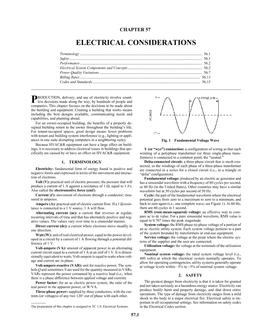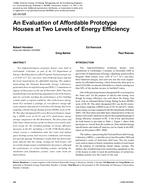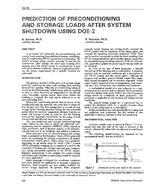Application of variable-speed drives to pumping systems modifies how an engineer must consider the analysis of flow in the closed-loop piping system. The system curve provides a fundamental relationship to describe flow and friction head loss in the hydronic system. It is fundamental that the hydronic system operates at the intersection of the system curve and the pump curve. Controlling system differential pressure by application of a speed drive to modify the effective operating shape of the pump curve creates an area of operation for the hydronic system. The system curve still exists, and the system still operates at the intersection of the system and pump curves, but the defined set of matched flow and head points going “up and down†a static pump curve changes, and it is found that there are an infinite amount of head conditions for each system flow condition between an upper and lower boundary. The area of operation is a composite of the infinite system and pump curves that exist based on the piping system geometry, the quantity of parallel flow paths of the system design, and the load control of the system through the control valve. This paper discusses how to calculate the area curve utilizing a step-by-step approach. This paper poses examples of how area curve shapes may be modified. This paper explains how the area curve influences the system sequence of operation and suggests modifications to design parameters to optimize system performance.
Units: Dual
Citation: Symposium, ASHRAE Transactions, vol. 109, pt. 1
Product Details
- Published:
- 2003
- Number of Pages:
- 12
- File Size:
- 1 file , 710 KB
- Product Code(s):
- D-16807


